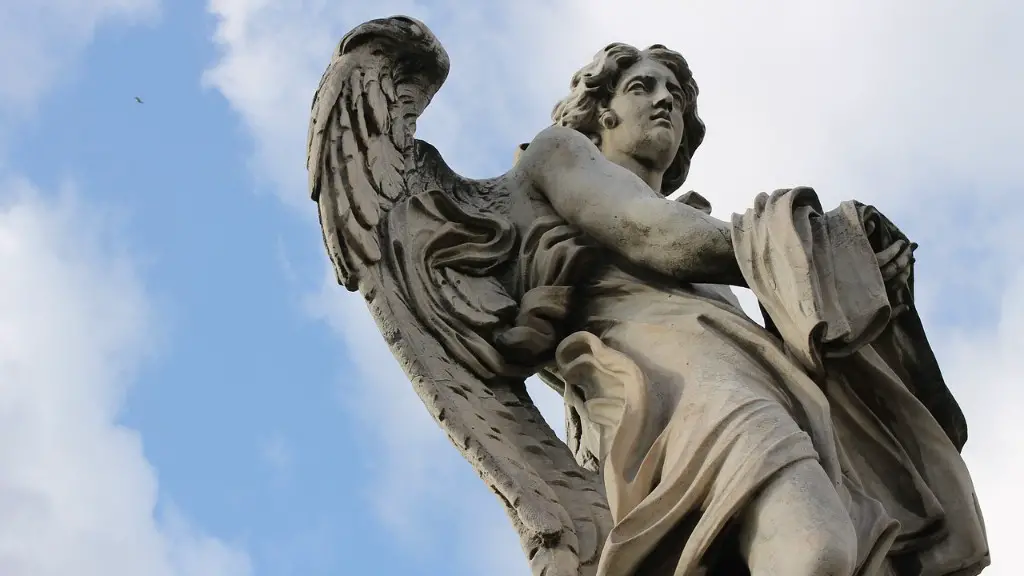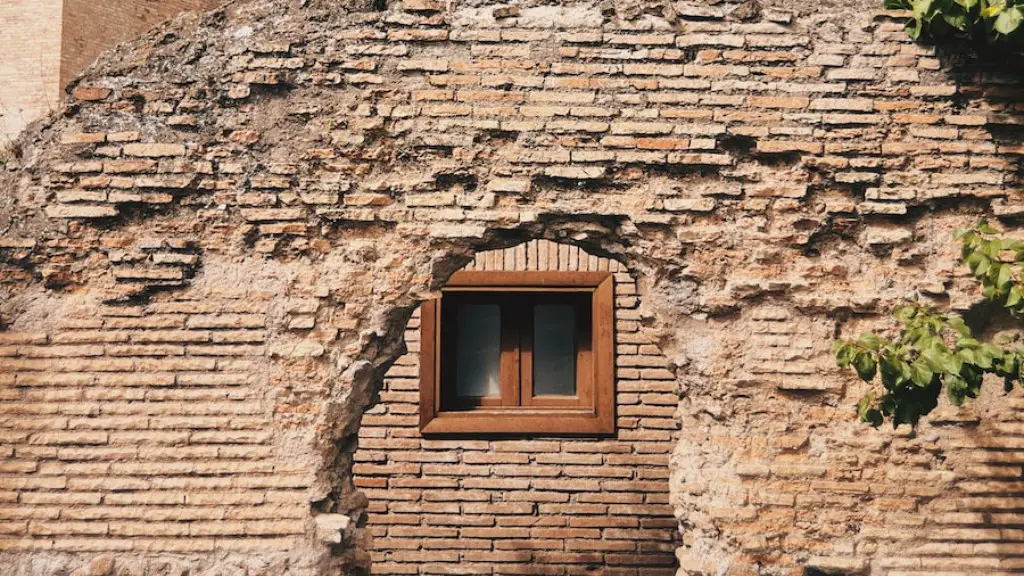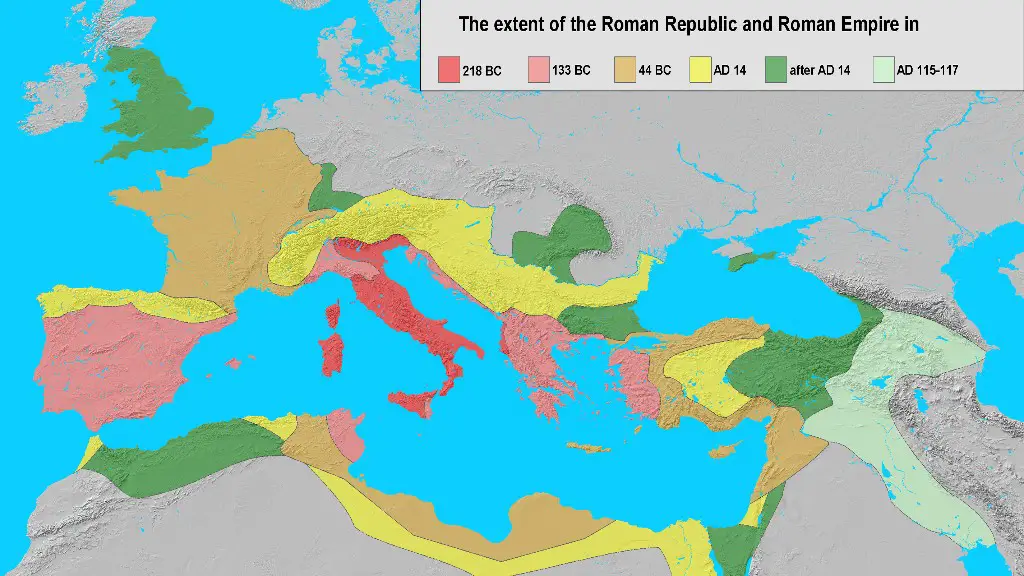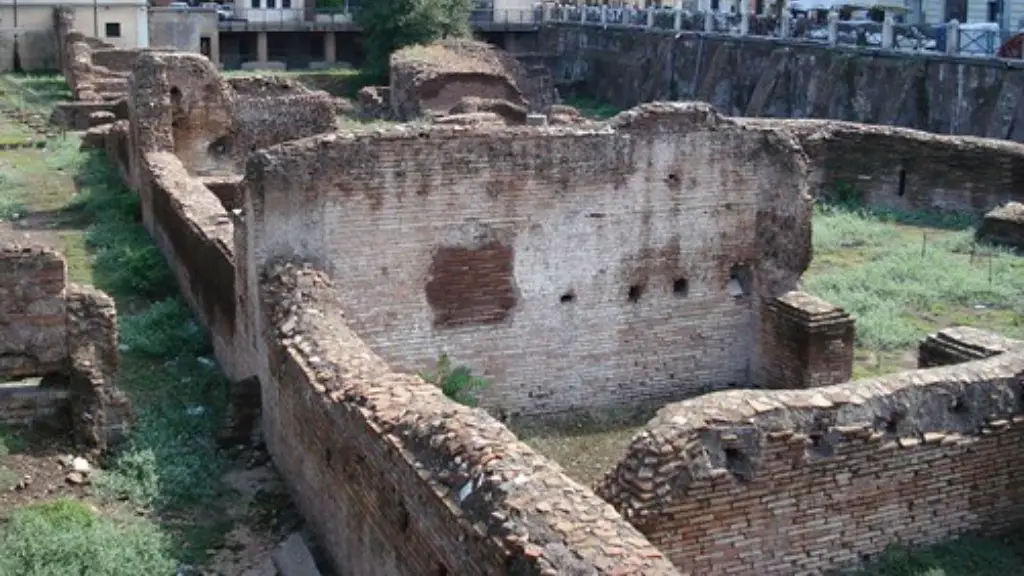Impact of Political Corruption on Ancient Rome
Ancient Rome’s decline was a long and slow process, one which saw the once powerful empire diminished to a mere shadow of its former glory. Political corruption was one of the main factors driving this decline. From its rise to its fall, Rome’s ruling classes had adopted a patron-client type of relationship with their subjects. Political corruption became rampant in Rome, culminating in its eventual decline.
The demise of the Roman Republic was due to the ineffectiveness of the government to address growing problems such as famine, rampant unemployment, social strife, and external invasions. To make up for the lack of money and resources, Roman politicians resorted to bribery and corruption. They granted tax exemptions and subsidies to powerful citizens, who, in turn, promised their support for Rome’s rulers. This system of patronage further weakened Rome’s economic and political stability, contributing to its eventual collapse.
The political corruption in Rome weakened its government and undermined the rule of law. This led to a decrease in efficiency and accountability. Many citizens lost faith in the government and began to resist its authority. As corruption grew, the empire struggled to maintain its power. Rome’s frontiers became more porous and the security of its citizens increasingly threatened.
Political corruption was exacerbated by the presence of powerful elites such as the Senate, who held considerable power and abused it to further their own interests. The Senate became increasingly unwilling to respond to the needs of ordinary citizens and instead worked to enrich themselves by levying heavy taxes and engaging in lucrative business transactions. This further weakened Rome’s economy, leading to social and political upheaval.
The combination of these factors, along with internal divisions and external aggression, resulted in the fall of the Roman Empire. While the empire did not fall overnight, it did succumb to its own corrupt practices, making it easier for other forces to topple it. Political corruption had become deeply entrenched in Rome and it took centuries for the consequences to become clear.
Economic Decline of Ancient Rome
The economic decline of Ancient Rome is often cited as one of the leading causes of its eventual downfall. This decline was the result of centuries of mismanagement and economic inequality, combined with the economic challenges posed by the growing population. As the population increased, Rome’s resources and infrastructure failed to keep up with demand. This left the Roman people vulnerable to economic and social challenges.
Rome was heavily reliant on its agricultural sector, yet this sector was increasingly unable to provide enough food to feed the Roman people. This led to a rapid rise in food prices, resulting in malnutrition and hunger. At the same time, the Roman manufacturing industry struggled as resources were diverted to maintain Rome’s military presence. This further weakened the economy and increased the financial burden on the Roman people.
The wealthy were able to continue to access resources, while the poor were left with little. This exacerbated social divisions and ushered in a period of economic and social turmoil. This instability combined with external pressures, such as invasions from Germanic tribes, resulted in a dramatic decline in the Roman economy. This declining economy led to a decrease in political agency, with citizens unable to influence the decisions of their rulers.
The economic decline of Ancient Rome also led to increased levels of taxation and higher pay for members of the aristocracy. This further compounded the economic burden on ordinary citizens, leading to a crumbling infrastructure and a dwindling supply of resources. This in turn led to a decrease in investment, a decreasing population, and an increasingly desperate population.
The economic decline of Ancient Rome was one of the most important factors that led to its eventual downfall. Rome’s once thriving economy was unable to cope with the rapid population growth and the burden placed upon it by its rulers. This lack of resources combined with social divisions and external invasions led to its demise.
Social Instability and Internal Conflict in Ancient Rome
Social instability was another major factor in the decline of Ancient Rome. As with many empires, Rome’s population was greatly divided between the wealthy ruling classes and the poor masses. This led to an increasing tension between the two that eventually erupted into civil unrest. The economic inequalities between the classes, coupled with external threats and increasing religious and political intolerance, caused civil wars and further reduced Rome’s power.
The social unrest led to a steady erosion of Rome’s authority and a decrease in its political influence. This weakening of the Roman state resulted in the loss of trade and resources, in turn making Rome vulnerable to attack from outside forces. Tensions between the classes also weakened Rome’s economy, as the tax burden fell disproportionately on the poorer population.
Internal conflict was a major factor in Ancient Rome’s decline, with a number of civil wars being fought during its existence. These Civil Wars were devastating to Rome’s economy and resulted in a decrease in agricultural production, a decrease in trade and a massive toll on Rome’s population. Internal conflict also weakened Rome’s military and political power, as many of Rome’s generals and rulers were killed or exiled as a result of the conflict.
Social instability was a major factor in Ancient Rome’s demise, as it led to a decrease in political authority and a weakening of the economy. Rome’s lack of resources combined with its internal conflicts made it vulnerable to external forces, which eventually led to the complete collapse of the once powerful empire.
Competition with Christianity in Ancient Rome
Rome’s competition with Christianity had contributed to its decline in many ways. Christianity was an emerging religion which directly competed with Roman gods and beliefs. The rising popularity of Christianity posed a serious threat to Rome as it directly challenged its authority. Christianity also eliminated the old Roman religion, which was a major source of public governance, customs and morality.
Christian values such as justice, mercy and humility directly opposed those of the ruling Roman classes. This challenge to the ruling classes threatened their power and their control over the people. Rome’s ruling classes responded by trying to suppress the new religion by persecuting its adherents, but eventually their attempts failed.
The rise of Christianity also caused economic and social problems for Rome. As Christianity provided a new source of hope for the citizens, many began to dissociate themselves from the old Roman culture and customs. This weakened Rome’s economy, as people refused to pay taxes and follow government regulations. In addition, Christianity provided a sense of moral and spiritual liberation, encouraging people to take up their own individualism which undermined Rome’s control.
Christianity posed a serious threat to the political and social power of Rome’s ruling classes, eventually leading to Rome’s weakening and its eventual demise. The competition between Rome and Christianity provided a major challenge to Rome, resulting in its eventual collapse.
External Invasions of Ancient Rome
External invasions played a major role in Ancient Rome’s decline. As Rome’s economy and political power weakened, its borders became increasingly porous and vulnerable to attack from external enemies. This was especially true during the 4th and 5th centuries, when numerous invasions from Germanic and other tribes began to weaken Rome’s control over its territories.
The invasions further weakened Rome’s economy, as the invaders destroyed vital infrastructure and pillaged the cities. This in turn led to a decrease in trade and investment, resulting in a further weakening of the economy. The invasions also led to a decrease in Rome’s political power, as it became unable to defend its territories or restore order in its cities.
The invasions of Rome also led to an increased reliance on mercenaries to defend its territories. This further weakened Rome’s military, as the mercenaries were less loyal to Rome and often switched sides. This further decreased Rome’s ability to defend itself, resulting in its complete collapse.
External invasions were one of the major factors that weakened Rome and contributed to its eventual downfall. As its borders became increasingly vulnerable, Rome was unable to adequately defend itself and protect its citizens. This, combined with its weakened economy, led to the complete collapse of the once powerful empire.
Famines in Ancient Rome
Famines played an important role in the decline of Ancient Rome. The population of Rome had grown exponentially and its resources had failed to keep up with demand. This led to a rapid rise in food prices, resulting in malnutrition, hunger and poverty across the empire. The economic mismanagement and lack of resources led to great suffering for the Roman people.
The famines also led to considerable social unrest, as citizens began to protest against the government. This unrest was further exacerbated by the inequality between the wealthy and the poor, with the wealthy able to access resources while the poor had to fend for themselves. This further weakened Rome’s economy, as its citizens were no longer able to pay their taxes.
The famines were also a major factor in Rome’s military decline, as its soldiers were often left weakened and ill-equipped. This was compounded by external invasions, as invading forces were able to take advantage of Rome’s weakened state and cause further damage. The combination of these factors further weakened the Roman Empire and contributed to its eventual demise.
Famines played an important role in the decline of Ancient Rome. The famine, combined with internal and external pressures, weakened Rome’s economy, military and social stability, leading to the complete collapse of the once powerful empire.




